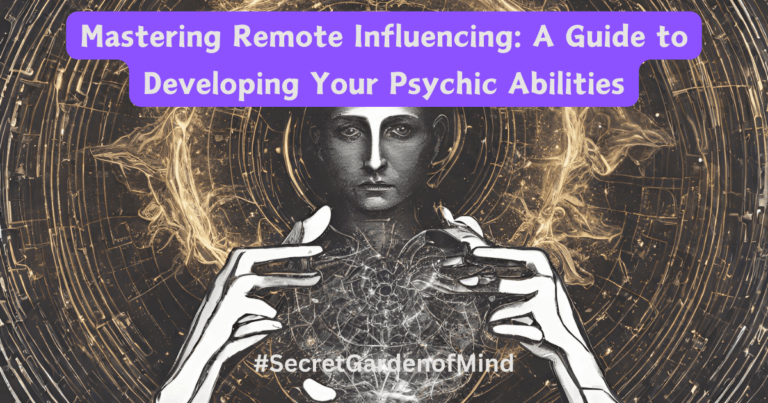Can You Train Your Brain To Lucid Dream? and Other FAQs
Can You Train Your Brain To Lucid Dream? Many will wonder about this because very often Lucid Dreaming can be a wonderful experience. Metacognitive dreaming, as this is also called, is where once asleep the person dreaming becomes aware that they are dreaming. In a lot of cases, a Lucid Dream can be controlled by the dreamer but not always.
However, this is the crazy part about it – someone that is able to induce Lucid Dreaming can over time begin to train themselves to actually control the narrative of their lucid dreaming experience.
There really are no words to describe the feeling of doing this. Ecstasy doesn’t really do this feeling justice. When you are having the Best Lucid Dreams they are like nothing you could ever imagine.
One I remember I had was just crazy I was in my local area just jumping from rooftop to rooftop and flying through the sky. The slightest thing can wake you up from these dreams which actually really sucks but basically, anything that you can realize as possible you can make happen.
I know this personally to be true but let’s take a look at this question a bit more closely…
Can You Train Your Brain To Lucid Dream?

If you have the ability to be aware that you are dreaming whilst you are in a dream state this is a Lucid Dream. This awareness allows you to control the dream and manipulate the dream world, leading to a greater sense of control over your sleep and dreaming experiences. Many welcome these adventures and many are very keen to trigger these dream states whenever that it’s possible!
I’m sure a good number of people reading this now will be intrigued to learn more about this so…
How To Train Your Brain To Lucid Dream?

So, one of the most popular methods for inducing lucid dreams is called “reality testing.” This involves regularly checking during the day to see whether you are awake or dreaming.
By repeatedly asking yourself this question, you train your brain to ask the same question whilst you’re dreaming, which increases the chances of realizing you’re in a dream.
Another technique is called “mnemonic induction of lucid dreams” (MILD) which involves repeating a phrase such as “Next time I’m dreaming, I want to remember that I’m dreaming” before you go to sleep. This helps you to remember to recognize when you’re dreaming.
Additionally, keeping a dream journal, in which you record your dreams as soon as you wake up, can help you to become more aware of your dreams and increase your chances of having a lucid dream.
It’s also important to have good sleep hygiene and to get enough sleep each night, as lack of sleep can negatively impact the ability to have lucid dreams. With all things considered this is something that should definitely help make this happen.
However, some people may be afraid of the idea of having these types of dreams but here I can speak from experience.
My Own Experience of Lucid Dreaming

Some years ago I used to suffer from terrible nightmares. What would occur was I would be in my bed and I would dream about having my duvet cover pulled off of me. Like I would be cold in bed trying to get warm and the whole thing would just get pulled off of me.
Like I wonder if this was some kind of supernatural demonic force feeding off my terror as I was so scared during these experiences. and what actually seemed to be happening was so real like some kind of Poltergeist activity.
But this was me dreaming and in the end, I actually used to welcome these nightmares because it was during these happenings that I knew I was in a dream state and I could actually take control of everything.
I think this was around the time I started reading articles by a guy called Ken Korczak about his own Lucid Dreaming adventures. I’m not sure if his stories are fictional or what he writes about meeting the same entities, visiting the same places, and using his knowledge gained from Lucid Dreaming to find objects in the real world.
I am not here to write about Ken today though but simply that it was these nightmares that used to help me begin lucid dreaming. I’ve not had one very recently but this is probably my tip if you are ever having a nightmare actually think about it whether you are awake or asleep. You can do two things here either wake yourself up or start Lucid Dreaming!
The Psychological Benefits Of Lucid Dreaming
One of the most interesting aspects of lucid dreaming is the potential benefits it can have on mental health and well-being. Studies have shown that people who are able to induce lucid dreams report experiencing less anxiety, depression, and negative emotions. Moreover, people that have Lucid Dreams report experiencing more positive emotions, such as happiness, contentment, and self-esteem.
Additionally, some people use lucid dreaming as a tool for problem-solving and personal growth, as they are able to confront and overcome their fears and insecurities in a safe and controlled environment.
However, still, it’s important to note that not everyone will be able to lucid dream, regardless of training. Lucid dreaming is a skill that can take time and practice to develop, and some people may be more naturally inclined to have lucid dreams than others. Although, for anybody that really is keen to begin their lucid dreaming journey there certainly is options.
Online Coaching for Lucid Dreaming

Please Note: Within the following section I will be including affiliate links. This might mean that I earn a commission for qualifying purchases made through these links. The price you pay will not be affected and if you have found this content helpful today this is a great way to help support my work.
Now, for anyone that actually would like to have their own Lucid Dreaming experiences one idea to consider is online coaching. My suggestion here is a website called HowToLucid.com. There are others but this is my top pick.
HowToLucid.com is a website dedicated to providing information and resources on the topic of lucid dreaming.
The website provides a variety of content, including articles, tutorials, and videos, to help individuals learn how to have lucid dreams. Some of the topics covered on the website include:
- Understanding the basics of lucid dreaming and its potential benefits
- Techniques for inducing lucid dreams, such as reality checks and dream journaling
- Tips for improving dream recall and dream control
- Information on potential risks and dangers associated with lucid dreaming
The website also features a forum where individuals can share their experiences and ask questions about lucid dreaming.
Overall, HowToLucid.com is a comprehensive and informative resource for anyone looking to learn more about lucid dreaming and how to achieve it. I will leave the rest up to you but I will just finish this article with some commonly asked questions about Lucid Dreams.
Lucid Dreaming FAQs
Let’s start here…
Q1.) How do I Train my Brain to Lucid Dream?
Ideas above such as dream journalling, reality testing, and the MILD technique (mnemonic induction of lucid dreams) can all help develop lucid dream awareness. Besides this, another good idea is to take time to really familiarise yourself with your surroundings.
Just knowing whether you are awake or dreaming is key here, and just noticing one thing out of place, in a mundane dream where you are just laying there in your bed or you’re in your bedroom could be the key to beginning lucid dreaming.
Q2.) Can you Train Yourself to Have Lucid Dreams?
Yes, you can check out the online coaching that I have shared above. There are actually a number of similar coaching programs available that will help develop your ability to begin lucid dreaming more frequently.
Q3.) How Do You Trigger Lucid Dreams?
Awareness is the key here. In theory anytime that you are dreaming if you can just realize that you are currently dreaming then you can trigger lucid dreaming experiences.
Q4.) What Causes Lucid Dreams in the Brain?
Lucid dreams are characterized by the dreamer being aware that they are dreaming while they are still asleep. Research suggests that lucid dreaming is associated with increased activity in the prefrontal cortex, a brain region that is responsible for self-reflection and metacognition, during REM sleep.
However, some studies have found that people who experience lucid dreams have greater communication between the prefrontal cortex and other brain regions during REM sleep, which may contribute to their ability to become aware that they are dreaming.
Q5.) Is Lucid Dreaming a Skill?
Lucid dreaming can be considered a skill that can be developed with practice. Some people naturally have lucid dreams more frequently than others, but for those who do not, it is possible to learn how to have lucid dreams through various techniques such as reality testing, dream journaling, and mnemonic induction.
Reality testing involves checking your surroundings throughout the day to see if you’re awake or dreaming. Dream journaling involves writing down your dreams every morning to help you become more aware of your dreams.
MILD, which was developed by lucid dream researcher Stephen LaBerge, involves setting the intention to become lucid before going to sleep and using cues in the dream to remind yourself that you’re dreaming.
With consistent practice, people can learn to have lucid dreams more often.
Q6.) Can Lucid Dreams Make You Smarter?
Some researchers have suggested that lucid dreaming may have cognitive benefits, such as improving problem-solving skills and creativity. Lucid dreaming allows the dreamer to have a greater degree of control over their dream, which may help them practice decision-making and problem-solving in a safe and controlled environment.
Additionally, lucid dreaming may provide a unique opportunity to explore the unconscious mind and access the vast resources of the psyche.
Q7.) Can Lucid Dreams Affect your Life?
Lucid dreams can affect your life in a number of ways. They can be used for personal growth and self-improvement, as well as for creative problem-solving and goal-achievement.
Some people use lucid dreaming as a tool for overcoming fears and phobias, while others use it to explore their unconscious minds and gain deeper self-awareness.
Additionally, lucid dreaming is used for entertainment and enjoyment. However, in some cases, lucid dreaming can lead to sleep deprivation and other sleep-related problems.
So, It’s important to maintain a healthy sleep schedule and not to overuse lucid dreaming as a tool.
Q8.) How Can I Dream More Vividly?
There are several ways to increase the vividness of your dreams:
- Keep a dream journal: Writing down your dreams as soon as you wake up can help to solidify the details of your dreams in your mind.
- Reality check: During the day, take a moment to question whether you are awake or asleep. This helps to train your brain to recognize when you are dreaming.
- Increase your REM sleep: Try to get more sleep overall, and focus on getting more REM sleep. This is the stage of sleep when most dreaming occurs.
- Meditate: Meditation can help to increase your self-awareness and improve your ability to control your dreams.
- Lucid dream induction techniques: There are several techniques for inducing lucid dreams, such as the MILD technique (mnemonic induction of lucid dreams) and the WILD technique (wake-induced lucid dreaming).
- Avoid Stimulants: Stimulants such as caffeine and nicotine can interfere with REM sleep and reduce the vividness of your dreams.
Keep in mind that the vividness of a dream can vary from person to person and can be affected by multiple factors such as sleep, diet, and stress. Also, lucid dreaming is a skill that can be developed over time and with practice.
Q9.) How Long Do Lucid Dreams Last?
The duration of a lucid dream can vary greatly depending on the individual and the specific dream. Some people may have a lucid dream that lasts only a few seconds, while others may have a lucid dream that lasts for several minutes or even longer. On average, a lucid dream may last between a few seconds to a few minutes.
It’s worth noting that the duration of a lucid dream may also be influenced by the level of control the dreamer has over the dream. A dreamer who is able to maintain a high level of self-awareness and control during the dream may be able to prolong the duration of the dream.
Additionally, certain lucid dream induction techniques such as Wake-Initiated Lucid Dreams (WILD) and Mnemonic Induction of Lucid Dreams (MILD) are known to increase the chances of having longer lucid dreams.
Q10.) Can You Feel Pain In Dreams?
It is possible to feel pain in dreams, although the experience of pain in dreams can be different from the experience of pain in waking reality. In dreams, pain can be less intense and less prolonged than it would be in waking life, and it can also be more easily ignored or dismissed.
Additionally, pain in dreams can be symbolic, representing emotional pain or unresolved issues rather than physical pain.
Some people report experiencing vivid and realistic pain in their dreams, particularly those who suffer from certain sleep disorders such as nightmare disorders. In some cases, the pain can be so intense that it wakes the person up.
It’s worth noting that the brain still activates the pain receptors during the dream, so you might feel pain but it’s not real, it’s a brain-generated sensation. In other words, you can’t get hurt in a dream, it can only affect your emotional state.
Q11.) Why Do My Dreams Feel So Real?
Dreams can feel very real because the brain processes them in a similar way to waking experiences. During dreaming, the brain is active in many of the same areas that are active during wakefulness. This can make the images, sounds, and sensations in dreams feel very vivid and realistic.
Besides this, dreams often incorporate elements of our daily lives and memories, which can make them feel even more real. The brain can also simulate the senses in the dream, such as touch, taste, smell, and sound, which can add to the realism of the dream.
Also, people who have more intense and vivid dreams tend to have more REM sleep (Rapid Eye Movement), which is the stage of sleep when most dreaming occurs.
Q12.) Can People Control Their Dreams?
It is possible for people to control their dreams to some extent, through a phenomenon called lucid dreaming. Lucid dreaming is a state of consciousness where the dreamer is aware that they are dreaming and has some degree of control over the dream. In a lucid dream, the dreamer can manipulate the dream environment, change the outcome of the dream, and interact with dream characters in a more conscious way.
There are several techniques for inducing lucid dreams, such as the MILD technique (mnemonic induction of lucid dreams) and the WILD technique (wake-induced lucid dreaming). These techniques involve training the mind to recognize when one is dreaming and to maintain self-awareness within the dream.
It is worth noting that lucid dreaming is a skill, and it may take time and practice to develop. Also, some people may be more naturally inclined to lucid dreams than others. Not everyone will be able to achieve a lucid dream or have the same level of control over the dream.
Q13.) Are Lucid Dreams Rare?
Lucid dreaming, in which a person is aware that they are dreaming and can potentially control the dream, is not considered rare. Studies have found that approximately 55% of people have had at least one lucid dream in their lifetime, and around 23% have lucid dreams at least once a month.
However, the frequency of lucid dreams can vary greatly depending on the individual.
Q14.) What Happens If You Lucid Dream a Lot?
Frequent lucid dreaming can have a variety of effects on a person, both positive and negative. Some potential benefits of frequent lucid dreaming include:
- Increased sense of control and agency in one’s dreams, which can lead to a greater sense of empowerment and self-awareness in waking life
- The ability to use lucid dreams as a tool for problem-solving, self-reflection, and personal growth
- The ability to use lucid dreams as a tool for overcoming nightmares or other sleep-related problems
However, frequent lucid dreaming can also have some negative effects, such as:
- Difficulty falling asleep or staying asleep due to the excitement of potentially having a lucid dream
- Disruption of the natural sleep cycle, which can lead to fatigue and other health problems
- Increased risk of sleep disorders, such as insomnia
- In some cases, the possibility of becoming addicted to lucid dreaming and neglecting responsibilities or other aspects of life
It’s important to remember that everyone’s experiences with lucid dreaming are unique and that what may be beneficial for one person may not be for another.
It’s always a good idea to consult with a healthcare professional if you have any concerns about your lucid dreaming.
Q15.) What Chemical Causes Lucid Dreams?
Lucid dreaming is thought to be caused by a combination of factors, including brain activity, cognitive processes, and chemical changes in the body. But whilst the exact mechanisms underlying lucid dreaming are not fully understood, several neurotransmitters and other chemicals have been found to play a role in the phenomenon.
One neurotransmitter that has been found to be associated with lucid dreaming is acetylcholine. This chemical is involved in several cognitive processes, including memory, attention, and learning, and is known to be active during REM sleep, the stage of sleep during which most dreaming occurs.
Research has found that increasing levels of acetylcholine in the brain can increase the likelihood of lucid dreaming.
Also, another neurotransmitter, Serotonin, is known to play a role in regulating REM sleep and dream vividness. Research here has found that people with depression, who have lower levels of serotonin, have less vivid dreams and less lucid dreams than normal.
Plus, other chemicals such as melatonin, a hormone that regulates the sleep-wake cycle, and cortisol, a stress hormone, also have been found to play a role in lucid dreaming.
Q16.) Can You Get Stuck In Lucid Dreams?
It is theoretically possible to get “stuck” in a lucid dream, but it is not a common occurrence. Lucid dreams are, by definition, dreams in which the dreamer is aware that they are dreaming and has some level of control over the dream. If a dreamer becomes stuck in a lucid dream, it would likely be because they are having difficulty disengaging from the dream and returning to waking reality.
There are some reported cases where people have difficulty waking up from lucid dreams, but it’s not entirely clear if this is the case of being “stuck” in a lucid dream or just the difficulty in differentiating the dream from reality.
If you are having difficulty waking up from a lucid dream, there are several things you can try to help you return to reality, such as:
- Telling yourself to wake up
- Repeating a mantra or affirmation to yourself
- Pinching yourself
- Focusing on a specific object in the dream, such as a clock or a light switch, and trying to change its appearance or manipulate it in some way
- Using a pre-agreed upon reality check method with yourself before going to sleep.
It’s important to keep in mind that lucid dreaming is a normal and natural occurrence and the majority of people who experience lucid dreams do not have any problems with them.
Q17.) Who Is Most Likely To Have Lucid Dreams?
There are several factors that have been found to increase the likelihood of having lucid dreams, including:
- Frequent dreaming: People who dream frequently, whether or not they remember their dreams, are more likely to have lucid dreams.
- Dream recall: People who remember their dreams more often are more likely to have lucid dreams.
- Meditation and mindfulness practices: People who practice meditation or other mindfulness techniques are more likely to have lucid dreams.
- Sleep schedule: People who have a regular sleep schedule and maintain a consistent sleep-wake cycle are more likely to have lucid dreams.
- Lucid dream induction techniques: People who use lucid dream induction techniques, such as reality testing or mnemonic induction of lucid dreams (MILD) are more likely to have lucid dreams.
- Certain personality traits: People who score higher on measures of introspection, self-reflection, and creativity are more likely to have lucid dreams
It’s worth noting that lucid dreaming can be learned and practiced by anyone, regardless of their predisposition to it. So, if someone is interested in having lucid dreams, they can learn techniques to increase the chances of having one.
It’s also worth noting that lucid dreaming is a normal and natural occurrence and people of all ages, cultures, and backgrounds can experience it.
Q18.) Can You Feel Touch In Lucid Dreams?
It is possible to feel touch in a lucid dream, as the sensation of touch is often linked to the sense of proprioception, which is the awareness of one’s body and its position in space. Some people who experience lucid dreams report being able to control their dream environment and manipulate their dream body, which can include feeling touch sensations.
However, it is also possible that the sensation of touch in a lucid dream is not as vivid or realistic as it is in real life.
Q19.) What Not To Do In Lucid Dreams?
There are a few things that experts generally advise against doing in a lucid dream:
- Over-excitement or agitation: It’s important to remain calm and composed in a lucid dream, as becoming too excited or agitated can cause the dream to end or become less vivid.
- Making rapid or abrupt movements: Slow, smooth movements are best in a lucid dream to avoid losing the dream state.
- Trying to fly too high: Flying is a popular lucid dream activity, but flying too high can cause the dream to end.
- Performing dangerous or reckless actions: Just like in real life, it’s not a good idea to perform dangerous or reckless actions in a lucid dream as it can cause psychological distress.
- Staying in the dream for too long: It is important to be aware of the duration of the dream, Lucid dreaming can be an intense experience, and staying in the dream for too long can cause fatigue, confusion, and disorientation.
It’s important to keep in mind that lucid dreams are a personal experience, and what may work for one person may not work for another. It’s best to experiment with different techniques and find what works best for you.
Q20.) Can Anxiety Cause Lucid Dreams?
Anxiety can potentially cause lucid dreams, as anxiety can lead to increased dream recall and vividness of dreams. Some people with anxiety may also experience more nightmares, which can increase the likelihood of having a lucid dream.
Q21.) How Can I Control What I Dream About?
There are several techniques that can be used to try to control what you dream about:
- Dream journaling: Keeping a dream diary can help you to remember your dreams more clearly, and can also help you to identify patterns or themes in your dreams. This can give you a better idea of what kind of dream content you are likely to encounter and help you to focus your efforts on trying to control your dreams.
- Reality checks: Performing reality checks throughout the day can help you to become more aware of when you are dreaming and to recognize when you are in a dream state. This can increase the chances of becoming lucid in your dreams and being able to control the dream content.
- Visualization: Before going to sleep, try visualizing the dream you want to have. You can do this by closing your eyes and picturing the dream in your mind. This can help to plant the seed for the dream you want to have and increase the chances of it appearing in your dream.
- Lucid dreaming induction techniques: Techniques such as the MILD (mnemonic induction of lucid dreams) and WILD (wake-initiated lucid dream) are known to be effective in inducing lucid dreaming.
- WBTB (Wake Back To Bed): This method involves setting an alarm clock to wake you up after 5 hours of sleep, staying awake for a short period of time, and then returning to sleep. This method can increase the chances of having a lucid dream.
It’s important to note that controlling your dreams is not always easy, and it may take some practice and experimentation.
Q22.) Does Sleeping Position Affect Dreams?
The position in which you sleep may not directly affect the content of your dreams, but it can have an impact on the quality of your sleep and the likelihood of certain sleep disorders.
Sleeping on your back can help to reduce the likelihood of sleep apnea, a condition where breathing is repeatedly interrupted during sleep. This can lead to a better quality of sleep and also can reduce the chances of having nightmares.
Sleeping on your stomach can put pressure on your back and neck, which can lead to discomfort and poor sleep quality.
Sleeping on your side is considered to be the best position for reducing snoring and sleep apnea. This position can also help to reduce acid reflux and heartburn.
It’s important to note that there’s no one “best” sleep position and it’s ultimately up to the individual’s comfort. Some people may find that they feel more rested when they sleep in a certain position, while others may not notice a difference.
In general, the quality of your sleep is more important than your sleep position when it comes to the effect on dreams. Factors such as stress, anxiety, and sleep disorders can have a greater impact on the quality and content of your dreams.
Q23.) Can You Force Yourself To Dream About Something?
It can be difficult to force yourself to dream about a specific topic, as dreams are often a reflection of subconscious thoughts, emotions, and experiences. However, there are techniques that can increase the chances of dreaming about a specific topic, such as visualization and dream journaling.
Visualization, as mentioned before, involves picturing the dream you want to have before going to sleep. This can help to plant the seed for the dream you want to have and increase the chances of it appearing in your dream.
Dream journaling can also help you to focus on your dream content. By writing down your dream as soon as you wake up, you can help yourself to remember the dream more clearly. This can also help you to identify patterns or themes in your dreams and give you a better idea of what kind of dream content you are likely to encounter.
Also, another technique to try is called dream incubation, which is when you specifically ask to dream about a specific topic before sleep. This can help you to focus your mind on the topic and increase the chances of it appearing in your dream.
Q24.) How Long Is One Second In A Dream?
The perception of time in dreams can vary greatly from person to person and from dream to dream. In some dreams, time may seem to pass quickly, while in others it may seem to pass slowly or even feel distorted.
It is also said that time in a dream may not be the same as in real life, a dream second may feel like a real-life minute or vice versa. This is because the brain processes time differently during sleep and dreaming.
So really It’s hard to give an exact answer on how long one second is in a dream, as it can be different for everyone and it can also vary depending on the dream.
However, it’s generally agreed that time in dreams can feel distorted and different from the time in reality.
Q25.) What Age Do Lucid Dreams Start?
Lucid dreaming is the ability to be aware that you are dreaming and to have some level of control over the dream. Lucid dreaming can occur at any age, but research suggests that it is more common in older children and adults.
Children can start to experience lucid dreams as early as age 5, but it tends to be more prevalent in older children and teenagers.
Mostly, It’s important to note that lucid dreaming is a skill that can be developed with practice and training, and some people may not experience lucid dreams until later in life.
In Conclusion
Now, circling back to the main question Can You Train Your Brain To Lucid Dream? The answer is quite simple – YES there are a number of techniques that can be mastered to increase the likelihood of having lucid dreams.
Throughout this article, I have left some quite detailed responses but seriously if you would like to train your brain to lucid dream more frequently I would definitely recommend HowtoLucid.com. You can also look to buy a lucid dreaming book – it is really just something you need to practice and over time this does definitely get easier.
Pretty much link anything really and on that note – if you have found today’s blog post helpful please don’t forget to give this a share with your family, and friends and on social media.
Also if you have anything you would like to share such as your thoughts, feedback and questions please don’t hesitate to drop us a comment in the comments section below.
Many thanks and Best Regards;
Alex B. Chivers
SecretGardenofMind.com







